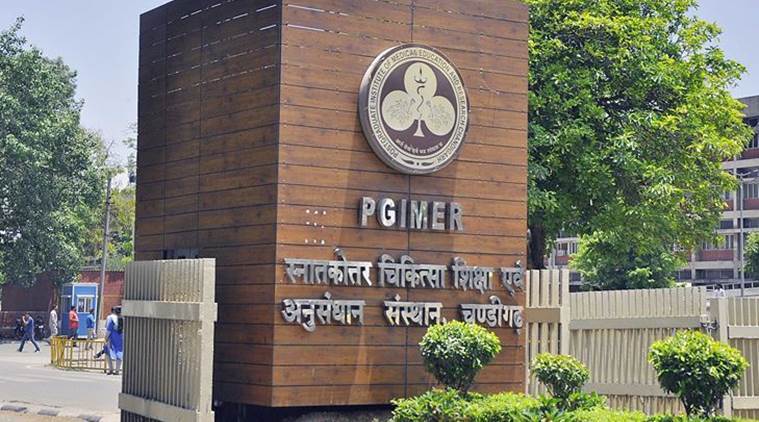 PGI Doctors’ Faculty Association president Rajesh Chhabra said some brands were known for quality control.
PGI Doctors’ Faculty Association president Rajesh Chhabra said some brands were known for quality control.
CHEMISTS AT PGIMER on Monday passed the buck to drug manufacturers and doctors for stocking and selling high MRP-brand of medicines despite cheaper alternatives being available. After a Chandigarh Newsline investigation showed the widely varying prices of the same drug at five different pharmacies at PGI, staff at chemist shops at the hospital said the MRP of medicines was printed by the manufacturer. They said the reason why they stock high MRP-medicines is that doctors prescribe them.
CNL found that of the five pharmacies, the total bill for four identical medicines (same salt but different brands) were highest at the two private pharmacies at vantage locations at the Emergency and trauma units of PGIMER.
Moreover, the most expensive medicine of the four was costlier at the private pharmacies. The medicine, whose salt name is Meropenem 1 gm, was available as brand name M-Penem 1 gm at Rs 1,550 at the Emergency pharmacy. The MRP was Rs 2,850 and the discount 45 per cent. Similarly, at the trauma centre, the medicine, branded as Acupenem, was selling for Rs 549 after 15 per cent discount from the MRP of Rs 646. While the government-run Amrit pharmacy stocked the most expensive brand, Meroplan, which has an MRP of Rs 3,248, the outlet was selling it with a 93 per cent discount at Rs 221.
At the private pharmacy in Nehru Emergency, the owner of the shop was not available for comment and his phone switched off. Also, the staff at the pharmacy refused to answer all questions.
At the private pharmacy at the trauma centre, manager Munish Kumar said: “We usually keep one or two brands of one medicine. When a patient visits our outlet, we give the medicine brand mentioned on the prescription with at least 15 per cent discount. If only a salt name is written on the prescription, then we provide either a branded or a generic medicine, depending on which one is available.”
An employee at a private chemist located at the Advance Paediatric Centre (APC), told Chandigarh Newsline, “We have to sell the medicines at prices mentioned on the strip. We also keep generic medicines at our shop and if we feel the customer is not in a position to purchase the costlier medicines, we give the generic drugs, which are much cheaper.”
Vijayanand, president of the Chandigarh Chemists Association, told Newsline that the chemists in the city supply only that brand of medicine which is prescribed by doctors. “If it is the salt, then obviously, we prefer to give the cheaper one because we want to provide maximum benefit to the patients,” he said.
PGI Doctors’ Faculty Association president Rajesh Chhabra said some brands were known for quality control. “There is also the question of bioavailability – that is how the medicine dissolves in and absorbed by the body, especially for blood pressure, diabetes, cholesterol, and if we change brands suddenly, it does not suit the patient.”
He asked why branded medicines should be available at all if they could not be prescribed. “If there are options, then people will exercise their choice. The alternative is to shut down all brands and keep only generic salts.”
Chhabra further stated that Jan Aushadi and Amrit do not stock all medicines. “Now some brands of repute cost much less than lesser known brands. What is happening these days is that these lesser known brands are offered at discounts but they have higher MRP.”
Vijayanand said the MRPs of medicines that are on the essential drug list of National Pharmaceutical Pricing Authority (NPPA) are fixed by the government and those not are fixed by manufacturers.
There are more than 10 chemists on the campus. One each private chemist is located at Nehru Emergency and trauma centre.